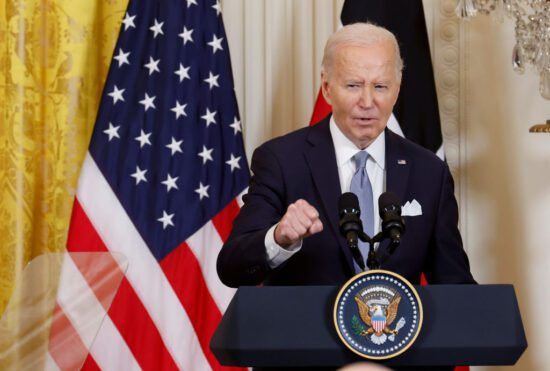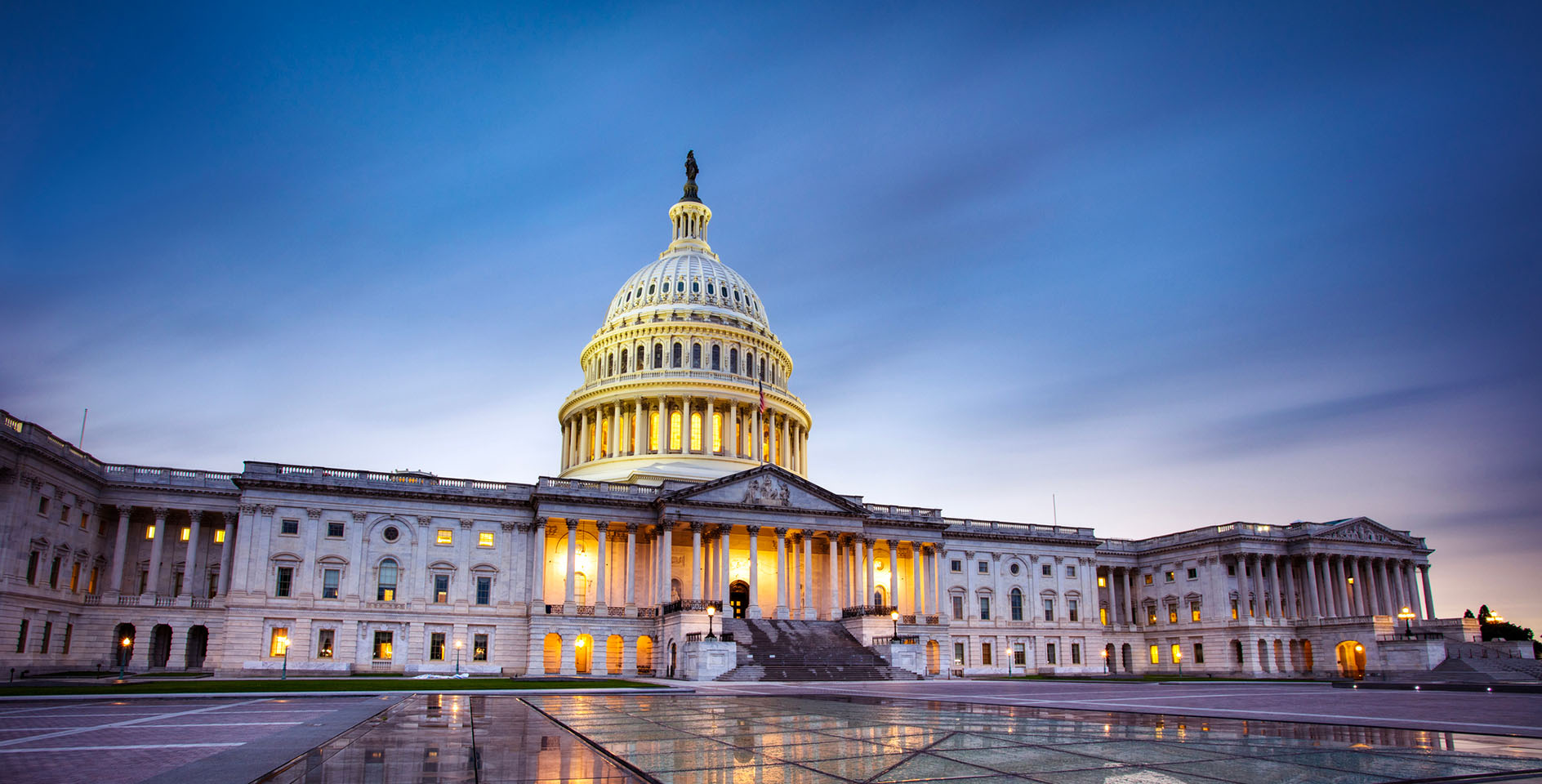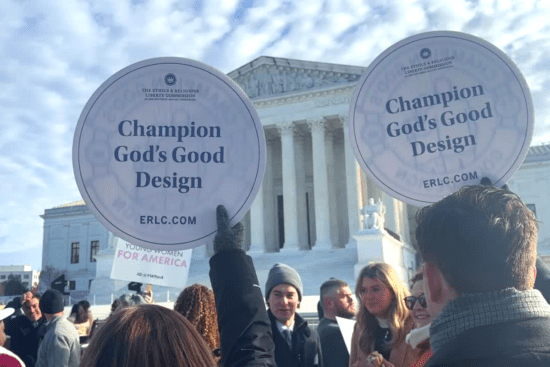This article is part three of a three part series:
Part 1
Part 2
Over the past month, the Biden administration has finalized numerous problematic rules that undermine religious liberty, widen access to abortion, and harm children and families. Whether in the context of healthcare, foster care, immigrant children, or the workplace, the ERLC is pushing back against these harmful federal regulations to ensure that consciences are protected and religious liberty is preserved.
By filing public comments, the ERLC seeks to inform agencies of some of the unforeseen consequences associated with proposed rules, request that changes are made before the rule is finalized, and represent Southern Baptists’ beliefs expressed through the Baptist Faith and Message and the numerous resolutions passed by messengers each year. Additionally, these comments assist our partners, who may reference public comments when engaging in litigation.
Below are summaries of 5 more of those proposed rules that the ERLC has filed public comment on:
Designated Placement Requirements Under Titles IV-E and IV-B for LGBTQI+ Children
Agencies: Children’s Bureau (CB); Administration on Children, Youth and Families (ACYF); Administration for Children and Families (ACF); Department of Health and Human Services (HHS)
Purpose: Establishes new federal requirements to provide that states may only place LGBTQ-identifying children with child welfare agencies that affirm LGBTQ ideology.
Effective date: July 1, 2024
Key Points:
- Mandates that states must make reasonable efforts to place LGBTQ-identifying children in “affirming, supportive, and culturally competent placements that meet their unique needs” by requiring such children be placed by agencies that offer placements in pro-LGBTQ families, including adoption and foster care agencies.
- Agencies are thereby prohibited from placing LGBTQ-identifying children through agencies that are affirming of the child’s self-identified sexual orientation, gender identity, or gender expression. In doing so, many faith-based providers are considered ineligible.
- The rule also requires such approved child welfare agencies to provide LGBTQ-identifying children with access to LGBTQ-affirming services, counseling, and other support while in care.
ERLC comments/concerns:
In December 2023, the ERLC submitted comments regarding our concerns that this rule change discriminates against religious providers and limits foster care options, harming children in need.
As we argued in our comments, “this proposed rulemaking discriminates against religious and faith-based foster care providers by forcing such organizations to choose between their deeply held convictions and their desire to live out their faith by caring for some of the most vulnerable children in our society.”
The ERLC is also concerned about the potential infringement on biological parents’ rights, particularly regarding decisions about gender transitioning during foster care placements. A primary goal of foster care is to facilitate a child’s return home, and allowing gender transitions against parents’ wishes is a clear violation of the rights of parents to direct the upbringing of their children in accordance with God’s Word.
Though we still have significant concerns with this rule, it is important to note that several changes were made in response to our comments. The finalized rule more clearly relays that states cannot require providers to become “designated providers” to serve LGBTQ-identifying children and that “affirming” a child’s gender identity is a separate matter from providing “safe and appropriate” care. The final rule also includes new language that affirm the religious freedom protections afforded to faith-based providers.
Nondiscrimination in Health Programs and Activities
Agencies: Department of Health and Human Services (HHS) and the Centers for Medicare & Medicaid Services (CMS)
Purpose: Amends Section 1557 of the Affordable Care Act, which is the nondiscrimination in healthcare provision, to expansively define “sex-based discrimination” to include discrimination on the basis of sexual orientation and gender identity.
Effective date: July 5, 2024
Key Points:
- This is the third final rule related to Section 1557 of the Affordable Care Act. The first was proposed in 2016 under the Obama administration. During the Trump administration, this rule was undone by a second rule in 2020, which then resulted in litigation. Early Biden Administration Executive Orders then prevented the second rule from taking effect.
- The rule redefines “discrimination on the basis of sex” to include, similar to other proposed rules, a definition of sex that includes sexual orientation, gender identity, and pregnancy-related conditions.
- Encouragingly, the proposed version of this rule does account for RFRA and assures faith-based organizations of the availability of exemptions. This is one indication that, despite how discouraging many of the Biden Administration’s proposed rules are, there are still moments of progress as a direct result of public comments.
ERLC comments/concerns:
In October 2022, the ERLC filed public comments in opposition to this proposed rule, highlighting key concerns around medical providers being forced to administer or cover abortions and “gender-transition” procedures. We argued that medical professionals and providers could be forced to administer or cover gender reassignment treatments if they provide the same underlying treatments for other conditions, regardless of their objections to the treatment for religious or moral reasons. That is, if a physician performs hysterectomies for cancer patients or hormone therapy for patients with hormone imbalances, HHS may force that doctor to administer those same treatments for patients seeking gender reassignments.
Our comments argued that this rule will ultimately mandate “gender affirming care,” and will impede the work of healthcare professionals, faith-based hospitals and insurance providers while failing to adequately protect religious freedom and conscience rights.
Though we still have significant concerns regarding the implementation of this rule and will be supporting litigation to overturn it, some improvements were made in the final rule as a result of our comments. The final rule clarifies that faith-based organizations cannot be mandated to perform abortions and includes a new deference to clinical judgment that offers protections for clinicians who do not believe an abortion should be provided for any number of reasons.
The Partnerships With Faith-Based and Neighborhood Organizations
Agencies: Department of Education, Department of Homeland Security, Department of Agriculture, Agency for International Development, Department of Housing and Urban Development, Department of Justice, Department of Labor, Department of Veterans Affairs, Department of Health and Human Services.
Purpose: Amends existing provisions for the relationship between faith-based organizations and the above agencies to remove accommodations for religious accommodations and limiting Title VII to only cover hiring and firing at an organization, which shrinks religious liberty protections for these organizations.
Effective date: April 3, 2024
Key Points:
- Though the rule does not prohibit faith-based organizations from applying, it does make it challenging for them to participate. Through revising the referral requirements and limiting Title VII protections, this rule opens the door for organizations that receive federal funds, such as faith-based adoption agencies, to be unable to provide services in accordance with their religious beliefs.
- The rule also includes new provisions such as requirements for faith-based providers to give written notice of certain rights to beneficiaries and offer referrals to alternative providers if requested.
- In general, this rule makes it more difficult for faith-based organizations to receive federal grant funding without being forced to choose between funding and their deeply-held religious beliefs.
ERLC comments/concerns:
In January 2023, the ERLC filed public comments in opposition because the proposed rule change would redefine the relationship between faith-based organizations and the federal government in key ways: requiring referrals to secular providers for individuals who disagree with the religion of the faith-based organization, redefining indirect federal financial assistance, not requiring the federal agencies to make accommodations for religious objections, and limiting the Title VII religious exemption only to hiring/firing employees.
Each of these areas creates a burden on the faith-based organizations which apply and seek federal funds to provide services to their communities. For example, the new rule would require that referrals be given to other services which may not share their religious beliefs if the individual seeking the service disagrees with the faith of the provider. Helpfully, the final rule clarifies that the burden for referrals should primarily rest with the government.
Similarly, the removal of the requirement for religious accommodation, while still allowing organizations to seek one, opens the door for the administration to deny reasonable accommodations for sincerely held beliefs. Further, the limiting of Title VII to only hiring and firing shrinks the religious liberty protections of these organizations.
The Safeguarding the Rights of Conscience as Protected by Federal Statutes
Agency: Health and Human Services (HHS)
Purpose: Rescinds portions of a 2019 Trump-era rule that expanded conscience protections for healthcare workers.
Effective date: March 11, 2024.
Key Points:
- The rule makes several key changes. First, while it maintains recognition of all the conscience protections that were mentioned in the Trump administration law, it also removes requirements for the enforcement and investigation of these protections. Furthermore, the rule removes definitions of discrimination and explanation, which are necessary for those who wish to lodge a complaint.
- In effect, if an individual files a complaint that their conscience rights have been violated because they were, for example, forced to participate in a sex-reassignment surgery or an abortion procedure as a medical professional, the Office of Civil Rights (OCR) within HHS is not required to actually act on that complaint and investigate.
- While the rule clarifies enforcement, it does not make any substantive changes to the existing federal conscience laws, which HHS says already reflect Congress’ balance between protecting conscience rights and ensuring access to “healthcare.”
ERLC comments/concerns:
In January 2023, the ELRC filed comments outlining our opposition to this change.
In our comments, the ERLC stated: “The ERLC is deeply concerned about the [rule] as currently drafted, as it will lead to fewer pathways for and lessened enforcement of protections of one of Americans’ most fundamental rights — to always act consistent with and never act against one’s conscience, especially as it pertains to deeply held religious or moral commitments.”
We were particularly concerned with this stated desire to “balance” conscience protections and the need to provide healthcare. The problem is that the new regulation does not balance so much as tilt the scales toward the preferred position of the Biden administration. If individuals have no ability to seek resolution or accommodation for a violation of their rights, then they are compelled to provide these services or leave their jobs.
In response to our comments, some positive changes were made to the final rule including some significant improvements to the complaint investigation process. This final rule is not as strong as the 2019 Trump-era proposed rule, but is an improvement from the 2011 Obama-era rule which is currently in effect.
Unaccompanied Children Program Foundational Rule
Agencies: Office of Refugee Resettlement (ORR), Administration for Children and Families (ACF), U.S. Department of Health and Human Services (HHS)
Purpose: Ensures unaccompanied children placed with foster families through the Office of Refugee Resettlement are both given individualized care and also provided with government-funded access to abortion and “gender transitions.”
Effective date: July 1, 2024
Key Points:
- The rule applies to the Office of Refugee Resettlement’s (ORR) Unaccompanied Children Program, which provides care and services for unaccompanied migrant children in federal custody by ensuring they are cared for medically, represented legally, and placed with a safe foster family while their immigration documents are being processed.
- The rule aims to ensure unaccompanied children receive what the Biden Administration has deemed “appropriate care,” including access to legal services, child advocates, “reproductive healthcare,” and support for children with disabilities. Notably, faith-based advocated have expressed concerns that the reproductive healthcare requirements and other provisions in the bill would provide these children with access to abortion and likely access to “gender transitions.”
- Additionally, the rule creates an office to provide independent oversight of the Unaccompanied Children Program, addressing calls from advocates for stronger monitoring, and sets standards for sponsor vetting, home studies, and post-release services to protect children from exploitation when placed with sponsors. The rule states a desire to treat unaccompanied children as “children first and foremost, deserving of care and protection,” going beyond the minimum existing requirements.
ERLC comments/concerns:
In December 2023, the ERLC responded to this proposal by submitting comments in response to the proposed rule, requesting that the ORR review and revise the rule and remove concerning elements that violated religious liberty protections, conscience rights, and endanger the preborn.
While the ERLC affirmed some parts of ORR’s changes that would provide greater care to these vulnerable children, the ERLC flagged three primary types of concerns related to abortion, religious liberty, and “gender transition” issues. Firstly, the ORR explicitly states that the office would continue to fund abortion-related travel for minors in the UAC program. Additionally, the ORR does not make any attempt to retain conscience and other religious liberty protections for ORR staffers and foster care parents whose deeply held beliefs may be infringed upon as a result of these newly established guidelines. Lastly, the ORR includes a provision whereby an unaccompanied child is able to request medical services “requiring heightened ORR involvement” and potentially requiring transport across state lines.
Though we still have significant concerns regarding this rule, the final rule did respond to some of the concerns raised and include some positive changes laying out conscience protections for ORR staff and faith-based providers.
Conclusion
The ERLC continues to participate and lead in our coalitions by submitting public comments. These comments represent the interests and concerns of Southern Baptists expressed time and again through the Baptist Faith and Message and numerous resolutions.
While federal rulemaking is a complicated and often discouraging process under some executive administrations, we retain an overarching confidence in the sovereignty of the Lord throughout the ever-changing political attitudes of our day. In the short term, there are also many small gains we are seeing as a direct result of our public comments; multiple rules have been improved in their final version to accommodate and respond to the concerns of faith-based organizations.
Your ERLC continues to proclaim God’s design for human flourishing and promote the protection of vulnerable lives.
View part one and part two of this series on the federal rulemaking process, the Biden administration’s proliferation of harmful federal rules, and how the ERLC has been active on each of the regulations mentioned. As always, the ERLC will continue to work with a coalition of organizations that will challenge these rules in court.












